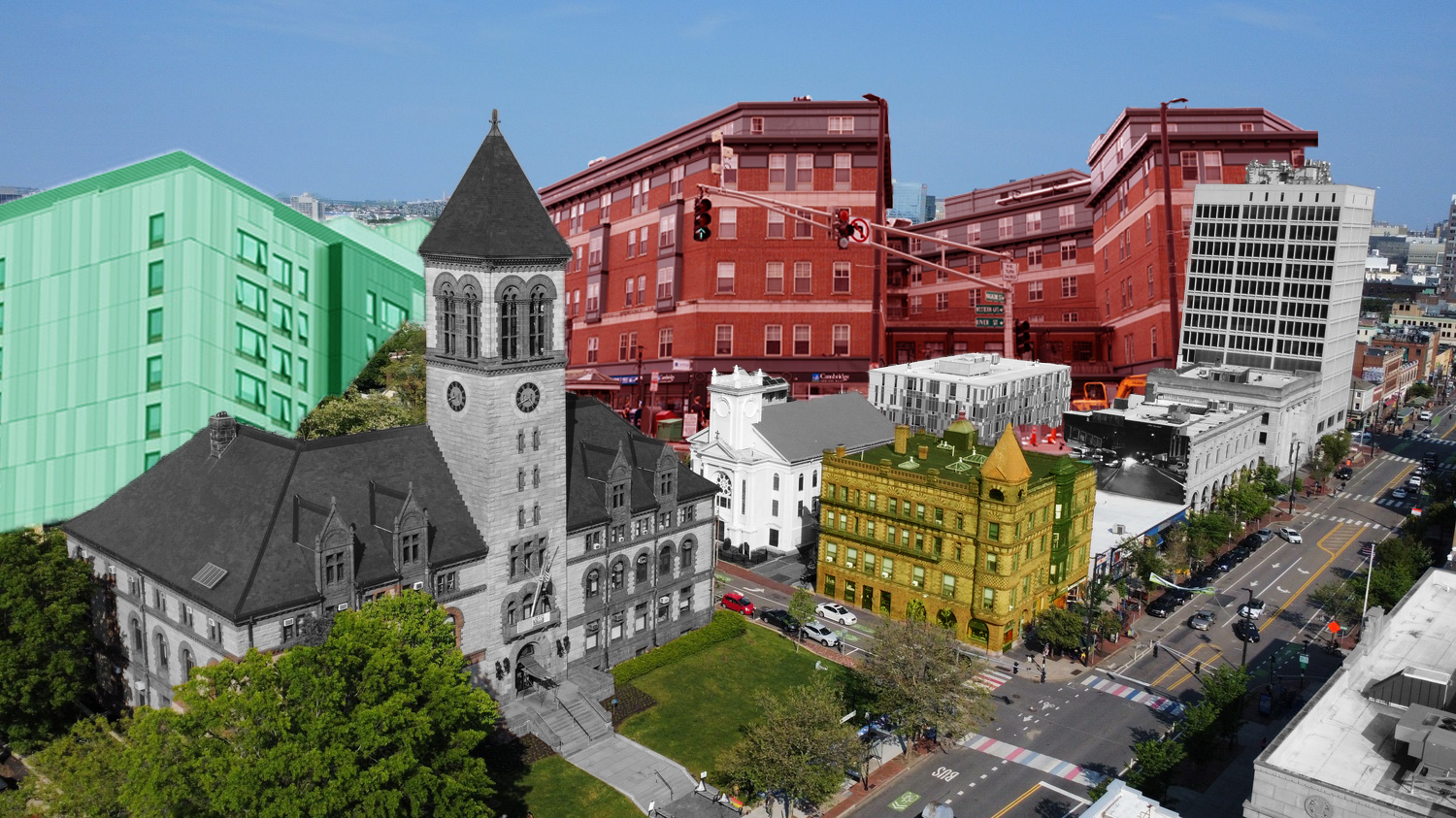
News
Harvard Researchers Develop AI-Driven Framework To Study Social Interactions, A Step Forward for Autism Research

News
Harvard Innovation Labs Announces 25 President’s Innovation Challenge Finalists

News
Graduate Student Council To Vote on Meeting Attendance Policy

News
Pop Hits and Politics: At Yardfest, Students Dance to Bedingfield and a Student Band Condemns Trump

News
Billionaire Investor Gerald Chan Under Scrutiny for Neglect of Historic Harvard Square Theater
With ‘Soul-Sucking’ Housing Costs, Young Cambridge Residents Wonder if They Can Stay

Twenty-year-old Aléx Monteiro Leith and his family lucked out with their landlord: it’s his grandfather.
As a result, Leith said he doesn’t have to worry about being able to remain in Cambridge. But he knows that for others, it’s not so simple.
“I would say it certainly does alleviate the stress for me personally,” he said. “but there is certainly stress about my peers and just sort of what I see changing in front of my own eyes as I grow up.”
In interviews, young Cambridge residents said they have watched as their home city has grown costlier and more gentrified. But unlike some older residents, who have reacted to the changing face of Cambridge by trying to halt development, they said there needs to be more housing — and affordable housing — to make the city a place where young people can forge a life of their own.
Miranda Santiago, 20, also said her parents own their home, giving her a level of security. But she added that she doesn’t know whether she would be able to stay in Cambridge without it.
“I can imagine that my only way that I would be able to stay in or come back to Cambridge and live there when I’m older is if they did keep the house because I really don’t think I could afford to live in Cambridge otherwise,” she said.
Leith said gentrification is economically polarizing the city, making it largely inaccessible to the middle class, which he called Cambridge’s “identity and lifeblood.”
For 27-year-old Cambridge City Councilor Burhan Azeem — who is the Council’s youngest member — the loss of Cambridge’s middle class created a “perpetual sense of loss” for many as their loved ones have been pushed out of the city because of its price tag.
“Everyone who lives in Cambridge, even if they want to stay themselves, like I do, always have a sense of, ‘My friends are slowly going to be moving away’, and I think that’s just very sad,” he said.
Santiago said that many people in her life have left Cambridge to find housing they can afford elsewhere.
“I know a lot of people who I went to school with, I was in elementary school, and they didn't make it to high school because they were pushed out of Cambridge,” she said. Teachers in Santiago’s high school were similarly priced out of the city, she said, forced to find employment elsewhere.
Azeem said Cambridge needs to prioritize building housing for residents of all incomes.
“Unless you do something where you just end up winning a lottery, though, you can’t live here,” Azeem said.
Sarah Stone, who moved to the city after graduating college six years ago, said “it stresses me out to think about staying in Cambridge in the long term.”
“Cambridge is a wonderful place to live, but I think that the rising cost of housing is really soul-sucking to any place,” said Stone.
Leith said the insecurity facing young people who want to remain in Cambridge has led him to support the city’s efforts to expand affordable housing.
“This is not a city where the super-wealthy who can just afford to flat out buy a multi-million dollar home should be given priority,” he said.
“Cambridge should keep investing in people who cannot just flat out afford to pay for these places, because if we don’t, then we risk losing the identity and culture that is our city,” he added.
Emily S. Goodling, who has been in Cambridge for the past two years, said cheaper and more available housing would alleviate the stress that comes with living in the city.
“I feel blessed, lucky to be here every single day. But I also worry about my housing a lot,” Goodling said.
Stone said that though Cambridge is changing, the city should respond by accommodating newcomers and trying to lower rents for those already living there, rather than shutting people out.
“People aren’t going to stop moving here, and so we do have to meet the moment,” Stone said.
“The thing that defines the character of a place is the people who live in it,” she added.
—Staff writer Laurel M. Shugart can be reached at laurel.shugart@thecrimson.com. Follow them on X @laurelmshugart or on Threads @laurel.shugart.
—Staff writer Grace E. Yoon can be reached at grace.yoon@thecrimson.com. Follow her on X @graceunkyoon.
Want to keep up with breaking news? Subscribe to our email newsletter.
Most Read
- Harvard Kennedy School Dean Denounces Visa Revocations in Email to Affiliates
- Harvard Is Turning Its Back on Scholasticide in Palestine
- More Than $110 Million in NIH Grants to Harvard, Affiliated Hospitals Terminated Since Late February
- After Trump’s Demands, Dean of Students Says College Diversity Offices Have No Plans To Cut Programming
- Harvard AAUP Sues Trump Administration To Stop $9 Billion Review of Harvard’s Federal Funding
